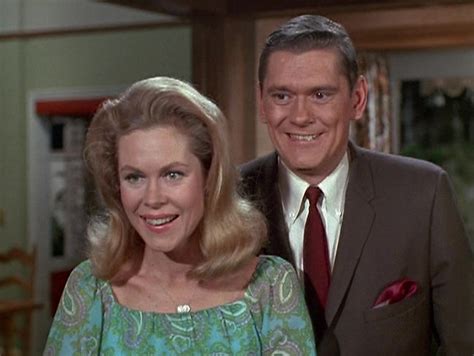
After 36 years on television, The Simpsons has seemingly killed off a long-standing character, sending shockwaves through the show’s dedicated fanbase, although the news may not be exactly as it appears. While initial rumors suggested Marge Simpson met her demise, details indicate the reports are greatly exaggerated and stem from a misunderstanding of a satirical article.
Reports of Marge Simpson’s death, widely circulated on social media, originated from a satirical piece, misleading fans into believing one of Springfield’s most iconic residents had been written off the show. The confusion highlights the power of misinformation and the intense emotional connection viewers have formed with the animated family over decades. Although no main character is dying, this media flurry prompts the question: What does the future hold for The Simpsons and its beloved cast?
The rumor gained traction after an article was misinterpreted, leading many to believe Marge Simpson would be killed off. However, close examination of the information reveals that there are no credible sources confirming this event. The show’s writers and producers have not made any official statements supporting the claim, further indicating its falsity.
“The Simpsons has a long history of playful humor and satire, and it’s essential to verify information before accepting it as fact,” said longtime media analyst, Harold Gunderson.
The animated sitcom, known for its comedic and sometimes prophetic storylines, has been a cultural touchstone since its debut in 1989. News of a major character’s death would undoubtedly have significant implications for the show’s narrative direction and overall appeal.
The internet quickly became rife with speculation and grief as fans grappled with the possibility of a Springfield without Marge. Social media platforms buzzed with reactions ranging from disbelief to outrage, with many expressing concern about how the show could continue without such a central figure.
This situation underscores the deep emotional investment viewers have in The Simpsons. The show has been a constant presence in many people’s lives, and the characters have become like family. Therefore, any suggestion of a major change, such as the death of a beloved character, is bound to elicit strong reactions.
The longevity of The Simpsons is a testament to its ability to adapt and remain relevant over the years. However, the show has faced criticisms regarding its creative direction in recent seasons. Some viewers argue that the quality of the writing has declined, while others maintain that the show continues to deliver entertaining and insightful commentary on contemporary society.
The show’s enduring popularity relies on its ability to balance familiar elements with fresh ideas. While it’s essential for a long-running series to evolve, any significant changes must be carefully considered to avoid alienating its core audience. Killing off a central character like Marge would be a risky move, potentially disrupting the dynamic that has sustained the show for so long.
As The Simpsons moves forward, it will be interesting to see how the show addresses the challenges of maintaining its relevance while staying true to its roots. The recent rumor surrounding Marge’s fate serves as a reminder of the intense passion and investment viewers have in the show and its characters.
To fully understand the implications and context surrounding this event, a more detailed examination of the show’s history, character dynamics, and creative evolution is necessary.
The Simpsons: A Cultural Icon
The Simpsons first appeared as a series of animated shorts on The Tracey Ullman Show in 1987. Two years later, it premiered as a half-hour prime-time show on Fox, quickly becoming a cultural phenomenon. The show revolves around the Simpson family – Homer, Marge, Bart, Lisa, and Maggie – and their life in the fictional town of Springfield.
Over the years, The Simpsons has become renowned for its sharp wit, satirical commentary on American culture, and uncanny ability to predict future events. The show has won numerous awards, including dozens of Primetime Emmy Awards, and has been praised for its writing, animation, and voice acting.
One of the key elements of the show’s success is its well-developed characters. Each member of the Simpson family has a distinct personality and set of quirks, making them relatable and endearing to viewers. Homer, the bumbling but lovable father, Marge, the caring and patient mother, Bart, the mischievous and rebellious son, Lisa, the intelligent and idealistic daughter, and Maggie, the perpetually silent baby, all contribute to the show’s unique dynamic.
The supporting characters in The Simpsons are equally memorable. From Mr. Burns, the ruthless and greedy owner of the Springfield Nuclear Power Plant, to Krusty the Clown, the jaded and cynical children’s entertainer, the show is populated with a colorful cast of personalities.
The Simpsons has also been praised for its use of satire. The show frequently tackles social and political issues, using humor to expose hypocrisy and challenge conventional wisdom. From environmentalism to consumerism, no topic is off-limits for the show’s writers.
In addition to its comedic and satirical elements, The Simpsons has also been known to make surprisingly prescient predictions. Over the years, the show has seemingly foreshadowed events such as Donald Trump’s presidency, the acquisition of 20th Century Fox by Disney, and even the COVID-19 pandemic. These predictions have only added to the show’s mystique and appeal.
However, as with any long-running series, The Simpsons has faced its share of criticism. Some viewers argue that the show’s quality has declined in recent seasons, with the writing becoming less sharp and the characters less relatable. Others contend that the show has become too reliant on celebrity cameos and gimmicky storylines.
Despite these criticisms, The Simpsons remains a cultural icon. The show’s impact on television and popular culture is undeniable, and its legacy is secure. As the show continues to air new episodes, it will be interesting to see how it evolves and adapts to the changing media landscape.
Marge Simpson: The Heart of the Family
Marge Simpson, voiced by Julie Kavner, is the matriarch of the Simpson family and one of the most beloved characters on the show. With her distinctive blue beehive hairstyle and her warm, nurturing personality, Marge is the glue that holds the family together.
Marge is portrayed as a loving and supportive wife to Homer, despite his many flaws and shortcomings. She is also a devoted mother to Bart, Lisa, and Maggie, always putting their needs above her own. Marge is known for her patience, her understanding, and her unwavering optimism.
Throughout the series, Marge has been depicted as a moral compass for the family. She often tries to steer Homer and the kids in the right direction, even when they resist. Marge is a strong advocate for education, the environment, and social justice.
Marge’s character has evolved over the years, reflecting the changing social landscape. In early seasons, she was often portrayed as a stereotypical housewife, but as the show progressed, she became a more complex and nuanced character. Marge has pursued various hobbies and careers, from painting to pretzel entrepreneurship, demonstrating her versatility and independence.
Marge’s relationship with Homer is one of the central themes of The Simpsons. Despite their differences, they share a deep and abiding love for each other. Their marriage has been tested many times, but they always manage to overcome their challenges and reaffirm their commitment to each other.
Marge’s relationship with her children is equally important. She is a constant source of support and encouragement for Bart, Lisa, and Maggie. Marge encourages their individual talents and interests, and she always tries to help them navigate the challenges of growing up.
Marge Simpson is a complex and multifaceted character who has resonated with viewers for over three decades. Her warmth, her compassion, and her unwavering love for her family have made her a beloved icon of American television.
Satire and Misinformation in the Age of Social Media
The recent confusion surrounding Marge Simpson’s supposed death highlights the challenges of navigating the digital age. In an era of instant information and social media sharing, it’s becoming increasingly difficult to distinguish between fact and fiction.
Satire, which relies on humor and irony to critique social and political issues, can be easily misinterpreted, especially when taken out of context. A satirical article, intended to be humorous and thought-provoking, can be mistaken for a genuine news report, leading to widespread confusion and misinformation.
The speed and reach of social media exacerbate this problem. A false rumor or misleading article can quickly spread like wildfire, reaching millions of people in a matter of hours. Once a piece of misinformation is online, it can be difficult to contain or correct.
The responsibility for combating misinformation lies with everyone. News organizations must ensure that their reporting is accurate and unbiased. Social media platforms must implement measures to identify and remove false content. And individuals must be critical consumers of information, verifying sources and questioning claims before sharing them online.
In the case of the Marge Simpson rumor, a healthy dose of skepticism and a quick fact-check would have revealed the truth. However, in the heat of the moment, many people were quick to accept the rumor as fact, highlighting the emotional connection viewers have with the show and its characters.
The incident serves as a reminder of the importance of media literacy and critical thinking skills. In an increasingly complex and interconnected world, it’s essential to be able to evaluate information objectively and distinguish between reliable sources and unreliable ones.
The Future of The Simpsons
As The Simpsons enters its fourth decade on television, the show faces a number of challenges and opportunities. The show must continue to evolve and adapt to the changing media landscape while staying true to its roots.
One of the biggest challenges facing The Simpsons is maintaining its relevance. In an era of fragmented audiences and endless entertainment options, it’s becoming increasingly difficult to capture and hold viewers’ attention. The show must find new ways to engage with its audience and remain a cultural touchstone.
Another challenge is maintaining the quality of the writing. As with any long-running series, The Simpsons has faced criticism regarding its creative direction in recent seasons. The show’s writers must continue to come up with fresh and innovative ideas to keep the show from becoming stale.
However, The Simpsons also has a number of opportunities. The show’s vast library of episodes provides a rich source of material for spin-offs, reboots, and other related projects. The show’s characters and storylines have the potential to be adapted into various formats, from movies and video games to theme park attractions and merchandise.
The Simpsons also has the opportunity to use its platform to address important social and political issues. The show has a long history of satire and commentary, and it can continue to use humor to shed light on pressing issues and spark important conversations.
Ultimately, the future of The Simpsons depends on the show’s ability to stay true to its core values while embracing innovation and change. The show must continue to evolve and adapt to the changing media landscape while remaining a source of entertainment and inspiration for viewers around the world.
The recent Marge Simpson rumor, while ultimately false, serves as a reminder of the enduring power of The Simpsons and its characters. The show has become an integral part of popular culture, and its characters have become like family to many viewers. As The Simpsons moves forward, it will undoubtedly continue to surprise and delight audiences for years to come.
Frequently Asked Questions (FAQ)
Q1: Is Marge Simpson really dying on The Simpsons?
A: No. Reports of Marge Simpson’s death are based on a misinterpretation of a satirical article. There has been no official confirmation from the show’s creators or producers that Marge will be killed off. The rumors are false.
Q2: Where did the rumor about Marge Simpson’s death originate?
A: The rumor originated from a satirical piece that was misinterpreted as a genuine news report. This highlights the dangers of misinformation and the importance of verifying sources before sharing information online.
Q3: How have fans reacted to the rumor of Marge Simpson’s death?
A: The reaction has been widespread disbelief, sadness, and anger. Many fans expressed concern about how the show could continue without such a central character. This demonstrates the deep emotional connection viewers have with The Simpsons.
Q4: Has The Simpsons killed off any major characters in the past?
A: Yes, The Simpsons has killed off characters before, but none have been from the main Simpson family. Notable examples include Maude Flanders and Bleeding Gums Murphy. Killing off a main character like Marge would be a significant departure and carry serious narrative implications.
Q5: What does this rumor say about the future of The Simpsons?
A: The rumor underscores the intense passion and investment viewers have in the show and its characters. While The Simpsons faces challenges in maintaining its relevance after so many years, it remains a cultural icon. The show’s future depends on its ability to balance familiar elements with fresh ideas and continue to evolve while staying true to its roots. The misinterpretation shows the impact even rumors have on a dedicated fanbase.









